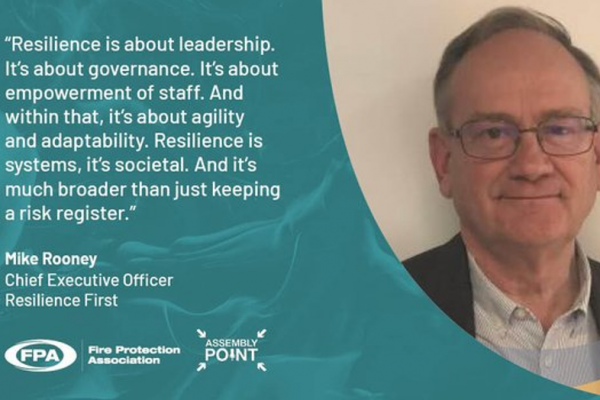Here is the unabridged version of the magazine article:
The Covid-19 pandemic has shone a spotlight on local, regional, national – and, of course, international – capabilities and responses. The word ‘resilience’ has increasingly crept into the lexicon as we battle with the virus and try to show an ability not just to bounce back but also to bounce forward as the Prime Minister has described. Whether on professional or personal fronts, we have all reached out for ways to ‘survive and thrive’, a succinct definition of resilience.
Boosting deterrence
It is rare that we have to had to develop a national response to such a pernicious and pervasive threat. It could be argued that our general lack of preparedness – in spite of a pandemic being at the top of the National Risk Register – may lead others to conclude that our defences are not as robust as we had claimed and, therefore, we may be vulnerable to other types of assault in the future.
In this way, our national preparedness reflects our deterrence capabilities, namely the ability to deny an aggressor the prospect of achieving his/her aims. (See Reference 1.) Matching intent with actions, and providing adequate resources, is the bedrock of resilience. It will be interesting to see what the latest Strategic Defence and Security Review, currently being drafted, says on this subject.
Joined-up thinking
Another study being undertaken by the UK Government is the Integrated Review, which is part of the regular five-year review of expenditure. In the previous administration, such integration was referred to as the Fusion doctrine. The latest version is an attempt to provide better joined-up government in order to fuse complementary capabilities across departments and build the trust and understanding to use all our capabilities effectively. It also aims to define the government’s ambition for the UK’s role in the world and the long-term strategic aims for national security and foreign policy, setting out the way in which the country plans to be a problem-solving and burden-sharing nation. It will offer a strong direction for recovery from Covid-19 at home and overseas so that people can together ‘build back better’. This can only strengthen national resilience.
Without pre-empting the findings of the Integrated Review, it may be timely and appropriate to consider some practical, perhaps radical, measures. Some ideas may come from the steps adopted by other countries. Sweden, for instance, has instigated a publicity campaign to prepare its population against national disasters – a leaflet distributed nation-wide does not seem to have overly alarmed the population there. In addition, a ‘total defence exercise’ has brought together the public and private sectors to work in unison at a national level. The Finns have a national college and courses to strengthen similar partnership working. These are efforts that could be emulated in the UK.
A volunteering scheme
Going one step further, there is a motive for resurrecting a voluntary civil defence (or resilience) scheme. From 1949 until 1968 the Civil Defence Corps (CDC) existed in the UK to prepare for and respond to a Cold War nuclear attack. By March 1956 the CDC had 330,000 personnel, largely volunteers, based around the country with regular training and exercising.
Now we have a threat as great as any nuclear exchange, if lacking the physical destruction. The co-ordination of our response to date has largely been through government departments and affiliated agencies, and some may say it has been inadequate for the scale of the pandemic threat and probably for other serious national challenges.
Certainly, the Civil Contingencies Act (passed 16 years ago and in urgent need of updating) together with the small Civil Contingencies Secretariat in the Cabinet Office have appeared to lack sufficient firepower in the crisis. Interestingly, the Prime Minister at the time of the Grenfell Tower fire in 2017 talked of introducing a national co-ordination task force to deal with large-scale disasters but nothing appears to have emerged since.
A volunteer civil organisation could help in times of national emergency and if the volunteering response to help the NHS has been anything to go by then the call will not go unanswered. It would require some dedicated planning and time to organise, train and exercise but this would be a small cost in the light of the benefits accrued.
Seize the opportunity
Resilience is a concept that is being increasingly recognised as a capability that is needed to face modern challenges. The pandemic has shown that the nation can come together and is ready and willing to put its shoulder to the wheel. This opportunity should not be missed in any official review to garner the spirit of the wartime Blitz and organise a national capability that confers real resilience and hence improves deterrence.
References:
- Resilience and deterrence, Resilience First, 29 January 2020. https://www.resiliencefirst.org/news/resilience-and-deterrence
- Updating national preparedness – a point of view, Resilience First, 19 May 2020. https://www.resiliencefirst.org/news/updating-national-preparedness-point-view
For further reading, please visit our Knowledge Hub.



